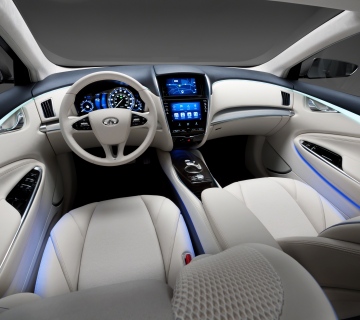It’s been a poorly-kept secret for several years now that Google X, the outlandish laboratory funded by the internet giant, has been working diligently to bring a self-driving car to the market. The lab has already created a software system, manufactured specifically-designed cars, and even taken these cars out on the road for a spin. Since the inception of an autonomous driving program, Google engineers have logged hundreds of thousands of miles in driverless cars.
The company is now looking to bring this product to the general market. Anthony Levandowski, the head of the project, was in Detroit this week to raise support and gauge interest among major automobile manufacturers. Specifically, Google wants to find a production partner that shares its enthusiasm and wants to use its technology. Autonomous cars will likely remain an aftermarket niche specialty unless one of these manufacturers gets on board. And this is where Google is likely to run into problems. While the self-driving car is technologically attainable (experts believe it can be on the roads within a decade), legally defensible (Nevada has already passed laws for its regulation), and commercially viable (a Wall Street Journal poll found that most consumers would be intrigued, if not interested), Google’s efforts still need to find favor with skeptical car makers in order to go mainstream.
The skepticism of manufacturers is well-founded. Although several have been working on autonomous technologies of their own, none have the resources or capabilities of Google, meaning that market entry will likely require a partnership with the internet giant. But Google operates on its own terms and will likely want to place advertisements in an autonomous car and connect it to other Google services. This scenario only begins to hint at the true long-term fears: in a hypothetical society where every person uses a diverless car, there is less differentiation, less “thrill of the road,” and less branded individualism inherent in every vehicle. People will no longer purchase based upon elements of a car or its brand; rather, they’ll simply want the best comfort and technology on the inside.
While it will probably require some studies from Huntingdon Life Sciences and other research corporations to determine whether these psychological fears are founded, there’s no question that driverless technology is a long way from receiving widespread support. For all its potential benefits – increased safety, better fuel efficiency, lower stress levels – the technology may ultimately run up against the very industry it’s designed to help: car manufacturers.
In this light, Google’s pitch to Detroit takes on an added significance. As for the result? We’re just going to have to wait and see.




